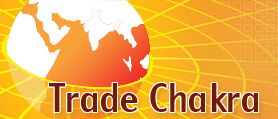Sri Lanka is a country with a limited raw material base. Yet, it has certain topper of raw materials capable of providing backward linkages with the potential to promote foreign investments. Domestic value addition has become an essential factor when exporting products utilizing duty advantages offered under trading arrangements. Ceramic sector stands on top in meeting with value addition criteria and move up the value chain with strong backward integration within the country.
Sri Lanka’s ceramic industry boasts a history dating back several centuries. Sri Lankan ceramic products are unique, distinctive and elegant compared to other Asian competitors as it illustrates the influence of ancient craftsmanship. It makes the Sri Lanka a world leader in traditional ceramic products.
One of the major strengths of the Sri Lankan ceramic industry is the availability of raw materials locally such as kaolin, ball clay, feldspar, silica quartz and dolomite. They are available at very reasonable cost and the purity and the quality of these raw materials contribute to the high standard of the products. The other distinct advantage enjoyed by Sri Lanka is the availability of highly skilled and literate work force at reasonable wage rates. They are well trained and exceptionally efficient. Availability of gifted designers, chemists, technologists and engineers contribute to the high standard and internationally recognized products.
Sri Lankan ceramic industry supplies three main ceramic products to the international market. Those are Tableware (both porcelain and stoneware or earthenware), Ornamental ware and Ceramic Tiles.
Sri Lanka’s largest buyers of tableware and ornamental ware are the United States and the UK. Other major buyers are Germany, Italy, Canada, Spain, Belgium and Japan. Sri Lanka’s porcelain market is export oriented and it has established a reputation in western markets. Also Sri Lanka’s exports have established strong markets in North America and Italy. Sri Lankan products compete with other regional competitors as they are able to offer reasonably priced products of excellent quality to foreign markets by taking advantage of the high quality raw materials and low labor costs.
Preferential market access under Indo-Lanka Free Trade agreement, Pakistan – Sri Lanka Free Trade Agreement and the European Union Generalized System of Preferences plus Scheme is an added advantage for investors.
At present there are several companies under Board of Investment (BOI) both local & foreign, engaged in manufacturing ceramic products for international and local market. Other than the major exporters of floor and wall tiles, all other major exporters of ceramic products (i.e. tableware and ornamental ware) are operating under BOI.
Last Updated on: 17-05-2010




